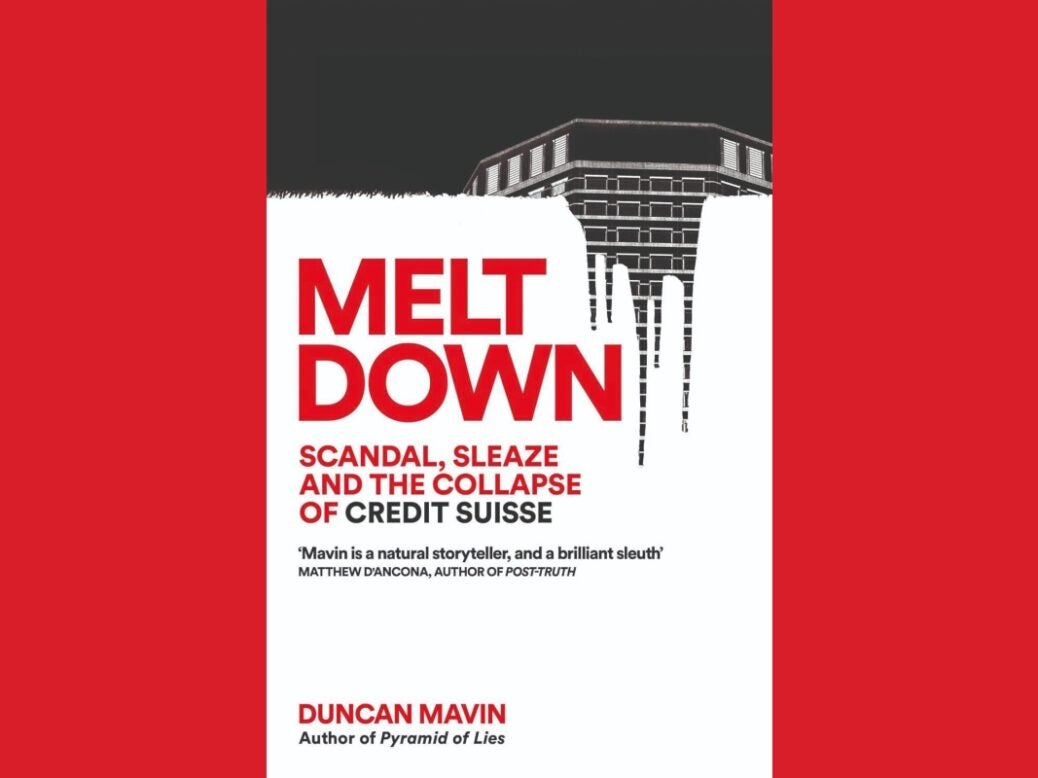
Long observation of the financial scene suggests reliable rules of thumb.
First, at any given moment in the life of an international bank, especially one in the premier league of investment banking, someone somewhere in the world will be taking on a huge exposure, lunching with a dangerous client, bending a rule or shredding a file in a way that will inevitably rebound to damage the institution’s reputation and knock senior management off course.
Second, repeated changes of leadership and strategy make relatively little difference if there are fundamental flaws in the culture of the organisation. And third, banks have a remarkable capacity to survive and airbrush successive scandals, regulatory reprimands, extraordinary losses and boardroom upheavals – until the fatal moment when they don’t.
[See also: Behavioural biases can impact your finances – here’s how to overcome them]
All this applied in spades to Credit Suisse, the Zurich-based bank that was counted by international regulators as one of 30 ‘global systemically important banks’ – until its recent demise, aged 167, in the form of a forced takeover by its long-time rival UBS. How the symptoms of decline that led to the fall can be traced back through the whole post- Second World War era is a saga told with commendable clarity by Duncan Mavin, a former reporter and editor for the Wall Street Journal and Washington Post.
Flawed and doomed?
An epigraph borrowed from Ernest Hemingway neatly encapsulates Mavin’s narrative arc: ‘How do you go bankrupt? Two ways, gradually and then suddenly.’ For Credit Suisse, the end in March 2023 was swift but painful as closeted negotiation with regulators and UBS chiefs led to a sale for $3 billion, a small fraction of its former value but upped from a derisory first offer of $1 billion.
[See also: The Spear’s Power List 2024: Who made the cut?]
Might the bank have been saved? Maybe, if the Swiss authorities had been prepared to fund a massive bailout for reasons of national pride; but not for long if the Twitter storm of negative postings that nearly killed it six months earlier had recurred.
In hindsight, did it deserve to survive but simply run out of luck? Not really: even in the banking sector – where the risks of a domino effect and panic cash withdrawals have to be taken into account by regulators – it must sometimes be right to allow a discredited and mismanaged weakling to go under, if only pour encourager les autres. That’s what happened to Lehman Brothers in the 2008 crash.
Was Credit Suisse fundamentally flawed and doomed to an unhappy end? Episode by episode, Mavin sets out to answer that question. The short answer is that its original Swissness didn’t help – but that it was ultimately destabilised by a turbulent marriage of Swiss and American banking cultures.
[See also: Financial regulators have gone too far]
‘Swissness’ v Americanisation
‘Swissness’ can of course suggest probity and prudence. But it also carries connotations of secrecy and closedness of mind. The first major whiff of scandal to afflict Credit Suisse (apart from $800 million worth of bad dealings in the Chiasso branch in the Seventies) was its association with hoarded Nazi treasure and its initial reluctance to release assets owned by Jewish customers who had died in the Holocaust. In more recent times, the provision of accounts for dictators, oligarchs and other villains made matters worse.
The Americanisation of Credit Suisse began in the Sixties through a fruitful relationship with the Zurich office of US investment bank White Weld; the Americans launched international bond issues which the Swiss placed with their clients. After White Weld changed ownership, a new joint venture in the form of Credit Suisse First Boston (CSFB) became a force to be reckoned with in global capital markets – staffed by the smartest dealmakers of the era and driven from the top by Credit Suisse chairman Rainer Gut, a committed internationalist and former partner of Lazard Frères in New York.

But CSFB was also a wasp’s nest of tension between cautious Swiss and gung-ho, bonus-hungry Americans. And from the turn of the 21st century there was rarely a time when the Zurich board wasn’t searching for a more streamlined corporate structure and, with it, a better way to control big risks and bigger egos.
‘It just had to end’
Against the odds, Credit Suisse came through 2008 without a bailout (unlike UBS) and – under a tough German CEO, Ossie Grübel, followed by a quiet American, Brady Dougan – seemed for a while to find its balance. But then came scandal after scandal, from sanctions-busting in Libya to corrupt ‘tuna bonds’ in Mozambique and hefty losses on clients such as the Archegos family office in New York. A high-profile CEO from London, French-Ivorian Tidjane Thiam, who previously ran the Prudential, was a fish out of water and ended his tenure after a bizarre episode of corporate espionage. Likewise, a parachuted-in chairman, former Lloyds Banking chief António Horta-Osório, lasted less than two years. Finally, in 2022, the bank reverted entirely to Swiss leadership. But by then its decline was irreversible.
[See also: Advisers to the super-rich are embracing the AI revolution — but at what cost?]
Mavin tells this story in chronological order and short chapters, eschewing the dramatised effects, imagined dialogue and excessive detail to which investigative authors are too often prone. Every turn of the bank’s fate is explained – though less clear than most is the passage on its entanglement with Australian supply-chain financier Lex Greensill, on whose bankruptcy Mavin previously wrote a full exposé, Pyramid of Lies. Perhaps he suffered from having too much information to compress.
Another disadvantage of the author’s raw material is that the line of Swiss chairmen and chiefs who came after Rainer Gut and ended with Axel Lehmann rarely stand out as personalities. By contrast, the big non-Swiss characters – including Wall Street big hitter John Mack, who was CEO from 2001-04, as well as Thiam and Osório – temporarily light up the stage.
[See also: UK to see largest exodus of millionaires in the world]
The epilogue of Meltdown offers three numbers that capture how badly Credit Suisse had gone astray: in its last decade it made a cumulative profit (net of losses) of $2 billion – after paying $35 billion in bonuses and more than $15 billion in fines for misconduct. That’s no way to run any business, let alone a ‘systemically important’ bank. As Mavin concludes, ‘Eventually, it just had to end.’
Meltdown: Scandal, Sleaze and the Collapse of Credit Suisse by Duncan Marvin, Macmillan Business, £22
Martin Vander Weyer is business editor of The Spectator






